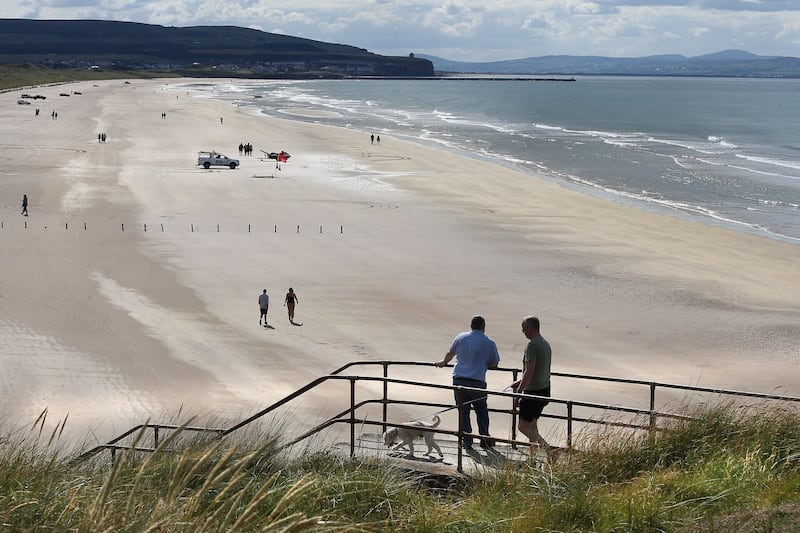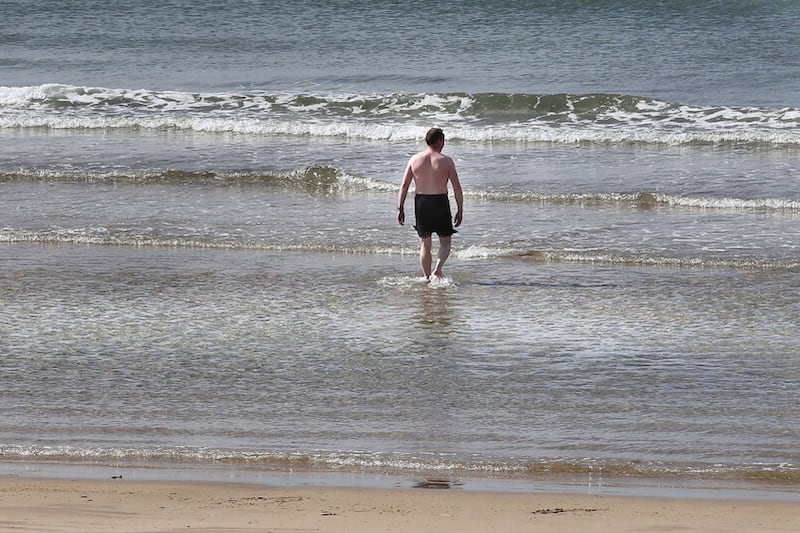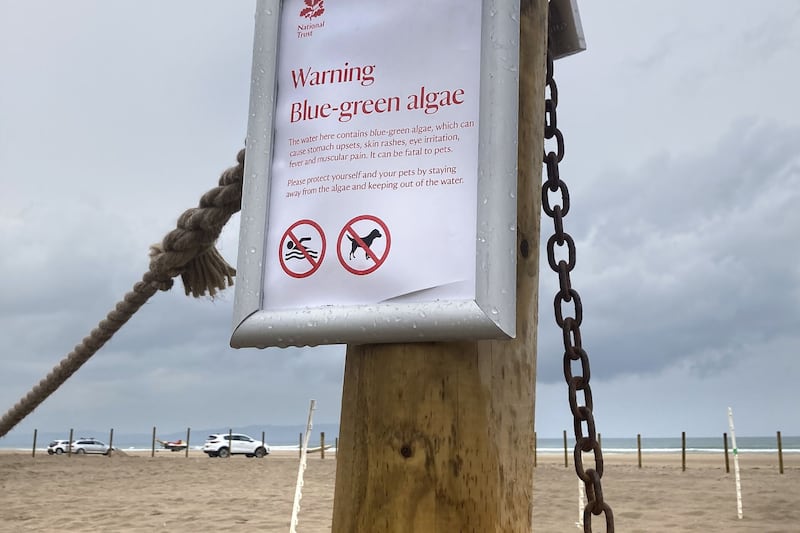A number of sites around the River Bann have been closed due to a breakout of blue-green algae.
Mid and East Antrim council announced that the Portglenone Marina slipway and waterways at Newferry would be closed due to blue-green algal blooms.
Blue-green algae can occur naturally in lakes, ponds, canals, rivers and reservoirs.
Unlike other types of algae, if it becomes too abundant it can pose a health risk to people, pets and wild animals who come into contact with it or ingest it.
Contact or ingestion can cause skin rashes, eye irritations, vomiting, diarrhoea, fever and muscle and joint pain.
Blue-green algae has also been attributed to the deaths of dogs, birds, fish and livestock in parts of the UK.
A council spokesperson said they had been contacted by the Northern Ireland Environment Agency (NIEA), part of the Department of Agriculture, Environment and Rural Affairs (Daera), regarding the blue-green algal blooms at Newferry and Portglenone.
“Portglenone Marina slipway will be closed until further notice for launching personal watercrafts (eg kayaks, canoes and paddleboards). Newferry will be closed until further notice,” the spokesperson said.
“People are advised not to swallow, swim or allow pets in the water. Avoid all contact with the algae.”
Daera have recorded blue-green algal blooms at a number of locations in rivers, lakes and coastlines this year.
The department says they continue to respond to reports of the algae within Northern Ireland waters and have put in place some emergency planning measures to deal with the situation.
NIEA, part of @daera_ni have confirmed Blue/Green algal blooms at Newferry and Portglenone Marina.
⛔️ #Portglenone Marina Slipway will be closed until further notice for launching personal watercrafts.⛔️ #Newferry will be closed until further notice. pic.twitter.com/k4c9a5j0NO
— Mid and East Antrim Borough Council (@mea_bc) September 11, 2023
Impacts of recent outbreaks have primarily been seen in Lough Neagh and the Lower Bann but other sites have also been impacted, including north coast bathing waters and the Fermanagh lakes.
Members of the public can report a suspected bloom through the NIEA incident hotline on 0800 80 70 60 or e-mail emergency-pollution@daera-ni.gov.uk with a photo, if possible, and details on the location of the potential bloom.
Daera has also launched the Bloomin’ Algae app which enables members of the public to submit a photo of the bloom taken on their phone and state what activity has taken place at a location, so that the potential risks to people and animals can be gauged.








